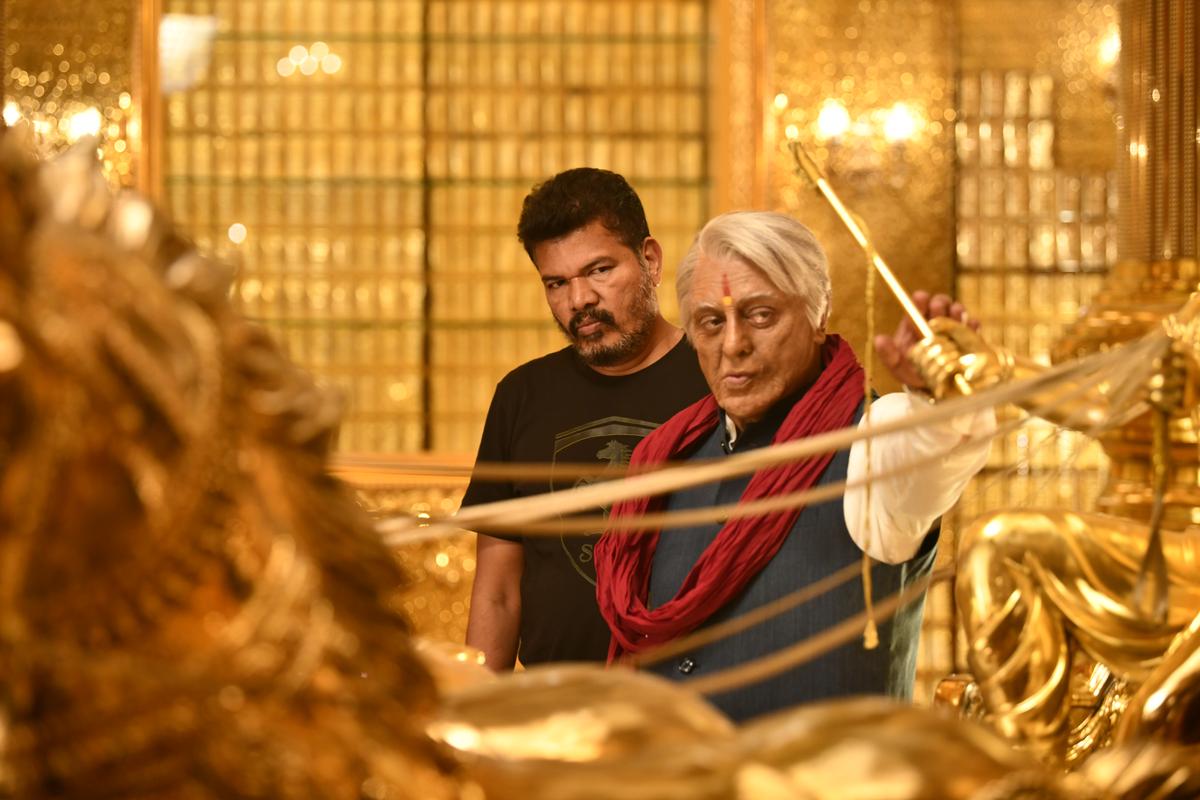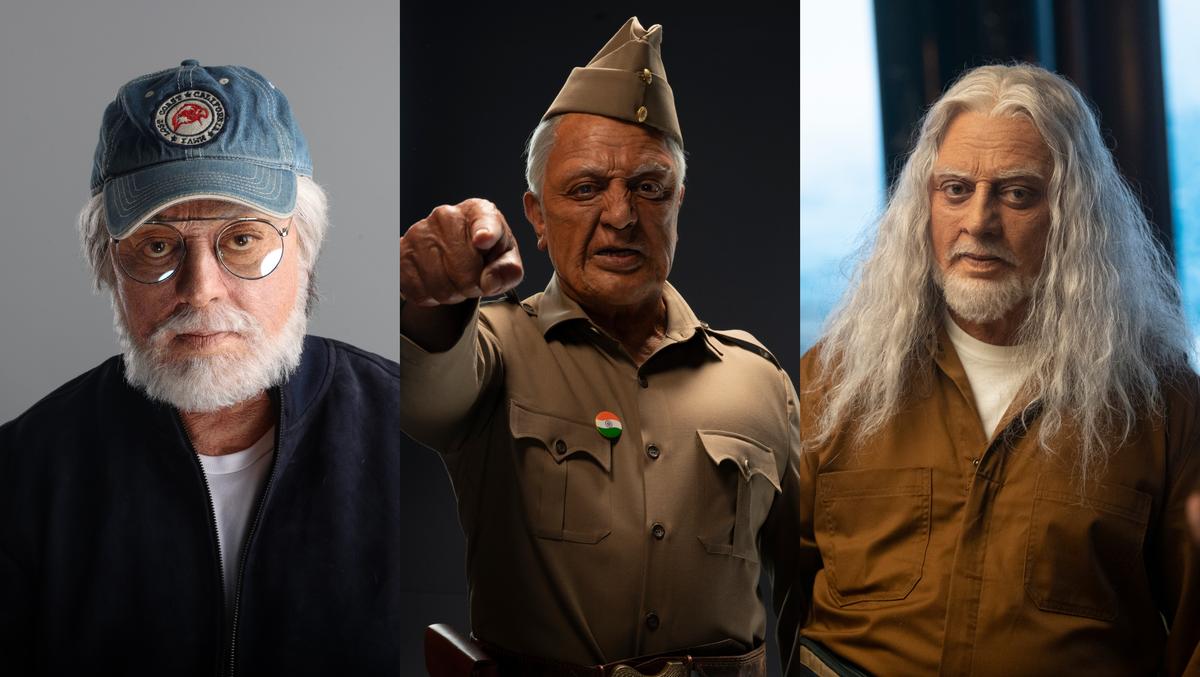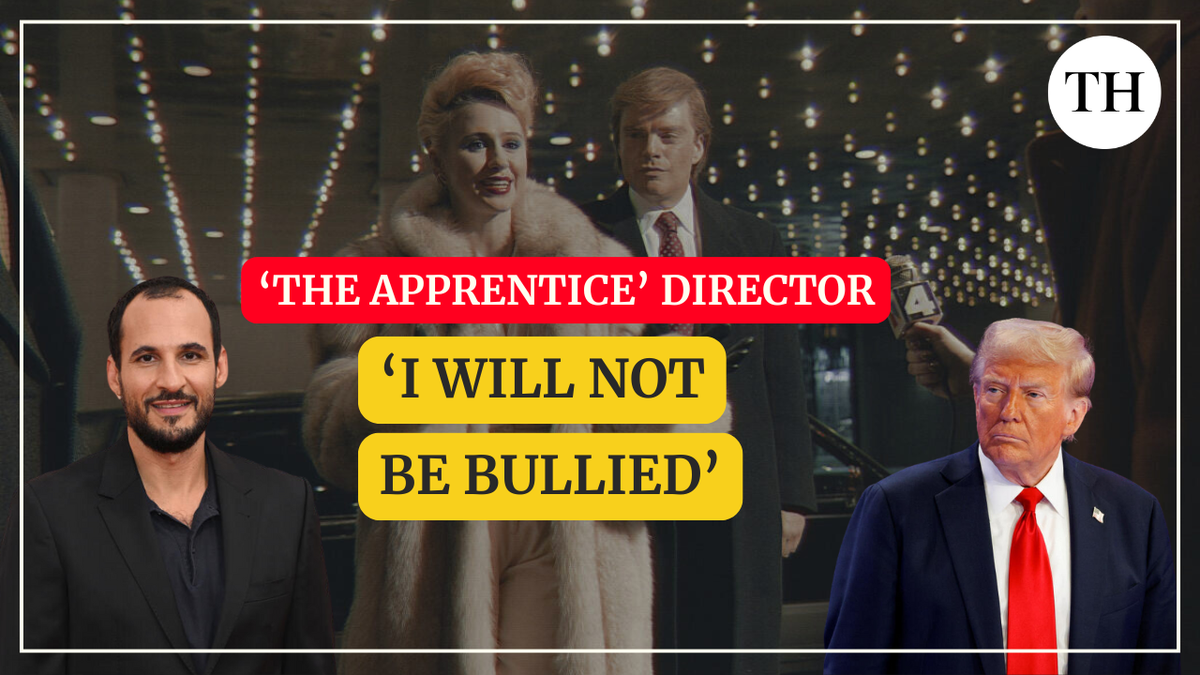When director S Shankar and actor Kamal Haasan’s Indian was released in 1996, actor Siddharth was just a teenager with lots of love for cinema. In just about seven years since then, he was launched in a Shankar film, Boys, and went on to become a prolific actor-producer who has starred in some stellar titles in three languages. What hasn’t changed, according to Siddharth, is the vision he had in cinema, his ever-growing love for Kamal, and the belief he had in Shankar’s world of Indian.
“When I saw Indian for the first time, it made me angry about the common man’s helplessness and made me empathetic to his pain,” says Siddharth, who is now reuniting with Shankar and getting to rub shoulders with Kamal in their much-awaited sequel films, Indian 2 and Indian 3. “Even today, I feel the same anger. That’s why Indian 2 has become more relevant. Nothing has changed on the corruption front, so we need a larger-than-life solution mixed with a lot of logical, real-life solutions.”

Shankar and Kamal Haasan on the sets of ‘Indian 2’
| Photo Credit:
Special Arrangement

Stating how the film is not just about the vigilante justice that Kamal’s character Senapathy metes out, Siddharth says that he sees these sequels as an honest attempt at franchising since it’s also meant to teach and guide future generations on politics, social awareness and social concern.
In this chat ahead of the release of Indian 2, Siddharth speaks about working with his gurus and how his character in the film is closest to his real-life personality.
Excerpts:
Siddharth, you are now a producer, and you are also collaborating with young filmmakers. What do you think young directors could learn from Shankar on how he manages a film of this scale?
Shankar sir and I are at opposite ends of the cinema paradigm; I’m an indie film producer, and he’s a big studio filmmaker. However, what I continue to learn from him is how he rules his film sets. It isn’t easy, but how calmly he controls one of such scale is a lesson. And from both Kamal sir and Shankar, I have learnt that misplaced anger is pointless.

You have always been vocal about your love and admiration for Kamal Haasan. Can you specify something about him that has made a huge impact on your life in cinema?
Twenty years ago, my list of favourite actors would have included Kamal Haasan, SV Ranga Rao, Balraj Sahni and Dilip Kumar. These, according to me, are India’s greatest actors. I hadn’t met three of them, but I had seen Kamal sir from afar. I never dreamt then that I would eventually get to meet him, talk to him, or have the chance to show him who I am. Importantly, acting alongside him was beyond my wildest dreams. So just being in Indian 2 is quite something.

Kamal Haasan in stills from ‘Indian 2’
| Photo Credit:
Special Arrangement
See, cinema is forever. Mani sir (Mani Ratnam) said that once the camera rolls, it’s forever. Now I am a part of the Indian franchise forever. And as much as I have become a student of Kamal Haasan — who is a university himself — I have also competed with him in this film. And he democratically let me compete as well.
My biggest preparation for this film was not to let the Kamal Haasan fan in me come in the way of me performing. Kamal sir and Shankar sir also ensured I had the space to prepare.
You previously mentioned how you tend to carry bits and pieces of your characters even after you finish shooting. Was that the case with your character in ‘Indian 2’ as well?
Of all the characters I have played in my career, the one in Indian 2 is the closest to my real-life personality. So I will carry Chitra Aravindan, my character, with me for quite a long time.
Siddharth and Rakul Preet Singh in a still from ‘Indian 2’
| Photo Credit:
Special Arrangement
Pan-India is the trend in cinema now, but Shankar, Kamal and you made pan-Indian films even decades ago. Did that experience and first-mover advantage help you in understanding the business?
I never desired to dominate any specific regional industry. If I see an opportunity to be in a good film, I’d selfishly take part in it. Secondly, I enjoy learning new languages, imbuing the mannerisms of the locals from that milieu and so on. So, I didn’t do those films for a reward or for a bigger paycheck. I am an actor who likes to dub in other languages as perfectly as my own language.
Also, I’ve truly been lucky because all Tamil speakers know about Boys and I have that identity in Tamil Nadu. Telugu people from across the world know of a film called Bommarillu, and that’s my luck. The same goes for Hindi speakers with Rang De Basanti. And now, incorporating all these languages, if there’s an Indian anywhere in the world, he’d know about Indian 2 — that’s pan-India for me. Both Kamal sir and I have dubbed our lines in our own voices in Hindi, Tamil and Telugu.
They say that when you learn a new language, it sensitises you to the life and culture in that milieu. Do you agree with this?
Definitely. When you learn a new language, unused parts of your brain are used for the first time. It’s like a right-hander using their left hand to write. Moreover, learning a new language also teaches you empathy. Because I will understand a man’s lament in yet another language. It takes me closer to their pain and closer to their reality. So if I can speak a language like a local, I can feel like a local.

Congratulations on the success of ‘Chithha.’ After the film’s release, many appreciated the film for how it depicted sexual abuse, something many other Tamil filmmakers continue to be criticised for…
Since the beginning, the one thing I told director Arun Kumar was that if we were touching upon such a sensitive topic, we had to do justice to it. We had to ensure that it didn’t come across as if we were doing it without a proper understanding of the subject, just for mere shock value, or to monetise a film with a sensational topic. So we put in lots of effort to ensure all that didn’t happen. Moreover, before the release of the film, we screened it for leading psychiatrists, child psychologists and survivors of sexual abuse; if they had pointed out something improper, I would have removed it from the film.
Siddharth
| Photo Credit:
S Shiva Raj
Did the success of such a film give you a lot of validation as an artiste?
I didn’t do the film for validation, but I am very grateful for it. Because one of the biggest tragedies is for a good deed to not get any validation. Making a good film is a penance. So when a film like Chithhagets awards in so many categories, it tells us that there is a pay-off to that penance. So a filmmaker who looks at our success will know that there is a reward for making real films about real people, real pain and real hope.

Has that success added more fuel to your storytelling vision?
Be it my intellect, madness or stupidity, I still have them as much as I did 20 years ago. One film will not affect those things; for instance, I am confident Indian 2 will create history, but that will not add to my responsibilities nor will it reduce my intelligence. I am the same person whatever happens in my life.
So what does the future hold for you?
I have been running here for over 20 years since Boys. For the next 20 years, Chithha will be the seed, while Indian 2 and 3 will be the fuel that pushes me forward. This is my time, and when it’s your time, you have to work at the same level and be as crazy as before. Next up I have Miss You and Test coming up; I have also signed three films that come after that, for which I start shooting soon.
Indian 2 releases in theatres this Friday



